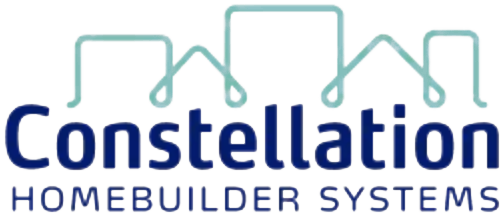Capability and Culture
Stiffer Headwinds Begin To Distance Better Firms From Peers
The capability to improve, in good times or bad, will hinge on enterprises' ability to blend cultural and data transformation to zero in best on undeterred homebuyers' pursuit of value.

Downturns through the ages of housing's past mostly result in fewer homebuilding companies.
By some accounts, as many as 55% of production homebuilding firms went belly-up in one form or fashion during the Great Financial Crisis of '07 to '09.
This current correction – because oncoming and future cyclical troughs won't ever again retrace labor costs, land costs, nor lending/finance costs to the dirt-cheap resets of prior housing busts – will very likely result in better homebuilding companies by the end of 2024 or early in 2025.
Better for two reasons that run together like a double-helix.

- Cultural transformation
- Data transformation
Cultural and data transformation – as value conveyors – will need to do the job that limitless, predictable, cents-on-the-dollar access to lots, labor, and lending once did as a function of cyclical housing downturns of the past. The two narrowly specific areas cultural and data transformation will impact most will occur at the team member talent level and the granular household customer level.
As catalysts, cultural and data transformation are disruptive because they're job is to take the place of cheap dirt, labor, and AD&C financing.
Only via that double-helix of transformation can a business model that comprises a full-stack of nested business practices – manufacturing, engineering, construction, environmental science, land planning and development, real estate, local policy, data analytics, marketing, sales, project management, distribution, purchasing and logistics, retail, financial services, architectural services, health and well-being solutions – simplify enough to match its core offering of value to a consumer's desire and means.
In a sense, it's likely that the current adverse stretch in housing will make homebuilding companies better as an inverse result of the proverb, "what doesn't kill you will make you stronger."
Instead, in the next six months to 30 months, homebuilders will either get stronger – thanks to their individual and collective cultural and data transformation – or they won't live to tell the tale.
- A cultural transformation's outcome – for homebuilding businesses capable of making themselves better companies despite economic and cyclical adversity for the next 12 to 30 months – will be organizations that are talent magnets in an industry uniquely positioned to impact and improve the world and the people in it.
- The data transformation's outcome – for those same businesses who are better at getting better – will be homes and communities whose beacon of offered value is well-being and a place to prosper.
A better company will digitally thread consumer household decision makers to the homes, communities, places they value – not selling a property but partnering on a livability experience. Hundreds of hand-offs – its with its own bill of materials ecosystem laden with time and money variables – can get closer to the single one that matters ... to the homebuyer where the full value is not just a transaction but a relationship.
A Collaborative Fund blog piece by Morgan Housel last week noted:
The thing to keep in mind is that in any endeavor that has the potential to deliver big rewards, the best you can do is put the odds of success in your favor, which means recognizing that if you make 100 attempts at something, 99 of them might be failures but one might be an enormous win."
A critical step – and one that homebuilding organizations and their partners are pursuing to improve the through-line of value to customers, starting with their needs, wants, and wherewithal and mapping it through the pre-development to settlement build cycle – is calling pieces, parts, practices, stages, and products by the same name, with a standardized metadata reference, used at every hand-off.
A building's structure and systems are, after all, made up of data, down to the subcomponent level and through all of the stages they travel through the building lifecycle," a construction technology strategist told The Builder's Daily this week in an interview. "Unifying that data is one of the biggest challenges to efficiency, optimization, and accountability, and it's also singularly the biggest opportunity."
About 5,000 U.S. companies build and sell 10 or more new homes a year, and together they account for nine of every 10 new home closings a year, and yet exactly five of those 5,000 build, sell, and settle on 200,000 or more new homes a year. This means almost no single rule can apply to all of those firms, in all of those geographies, climate zones, topographies, jurisdictions, and communities.
Where the largest enterprise commands in the very low double-digits in market share, and the smallest player requires many decimal places to show up in the mathematical set, you'd be hard pressed to prove to a skeptic that they're all even in the same business. Capital structures, operational models, land-access, frontline labor resources, design capability, materials deals, and a hundred other subtle and not-so-subtle difference set homebuilders apart.
Mostly though, they invest a great deal of money and time at the front-end of a value stream that generates a return on all of that front-end investment at the back-end of the build-cycle.
And, mostly, for the 2020s, all of those firms will be working in a housing landscape that is underbuilt, under-financially-resourced, and full of land-use barriers that heap costs on those who need and want shelter.
Better companies today are better not by virtue of their size or capital structure, but because they're capable – in good times or bad – of improving constantly by leaning into their frontline worker culture to drive improvement through all of those hundreds of hand-offs so that a customer's experience can reign as the highest priority.
Unified data is the genome of that double helix. It's where a company gets better because it's able to empower its people to more directly impact a customer's experience and sense of value.
Join the conversation
Constellation provides fully-integrated or standalone software solutions expertly engineered to manage the complete ecosystem of a homebuilder’s business functions and growth.
MORE IN Capability and Culture
Moody’s Christian deRitis To Take The Stage At Focus On Excellence
Moody’s economist Cristian deRitis to keynote Focus On Excellence 2025, where homebuilding’s enterprise leaders sharpen operational and leadership readiness.
Leadership Transformation, Not Just Another Industry Event
At Focus On Excellence, Chris Ertel and Johanna Buurman will lead a hands-on, transformative journey for homebuilding business leaders ready to move beyond analog operations.
Where Homebuilding Wisdom And AI Talent Build What's Next
Focus On Excellence 2025 is where hard-won insight meets next-gen fluency—in one room, for two days, to build firms to survive through to 2030, and thrive well beyond.


